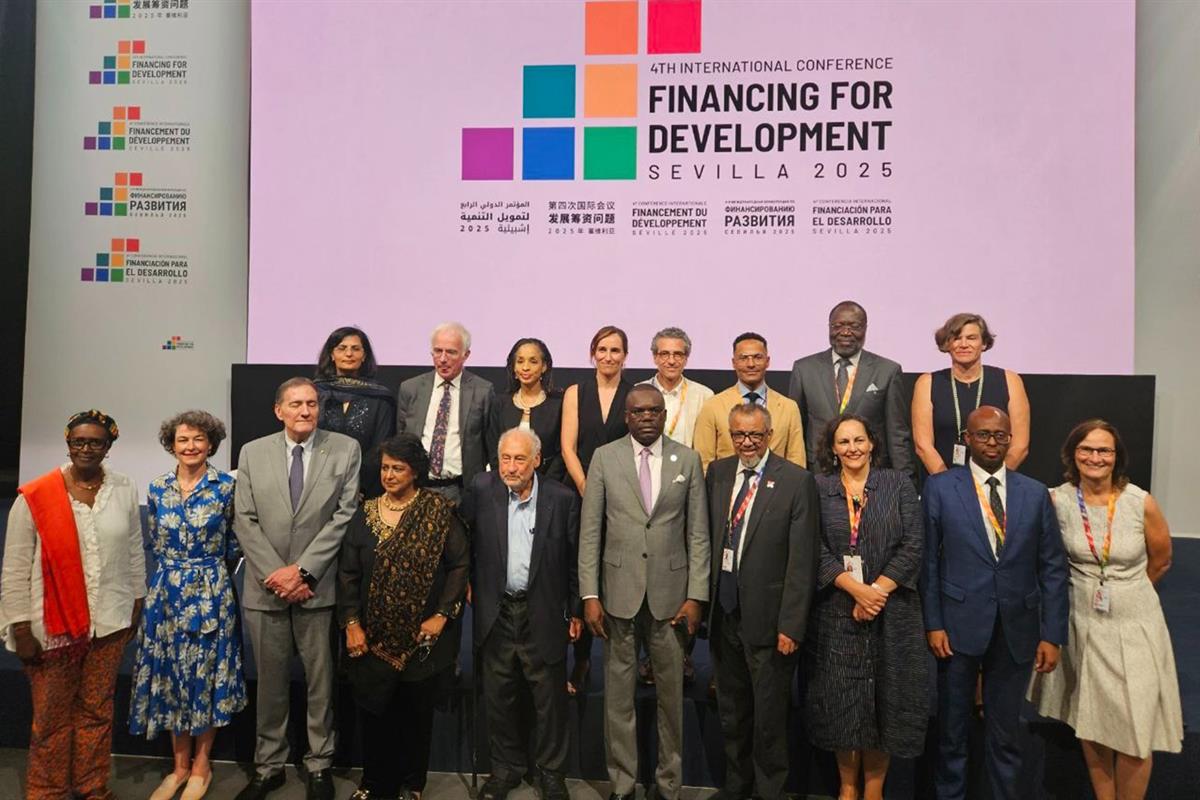Spain promotes from Seville the creation of a Platform for Action to reform global health governance
News - 2025.7.2
 The Minister for Health, Mónica García, at the forum "Spain in the Global Health Governance Model," held within the framework of the 4th United Nations International Conference on Financing for Development
The Minister for Health, Mónica García, at the forum "Spain in the Global Health Governance Model," held within the framework of the 4th United Nations International Conference on Financing for Development
The Minister for Health, Mónica García, has announced at the Seville Summit the creation of an international Platform for Action, with the aim of promoting a comprehensive reform of the multilateral health system. During her participation in the forum "Spain in the Global Health Governance Model", García presented this proposal as a "starting point for building alliances between like-minded countries and strategic partners that are committed to fairer, more collaborative and efficient health governance".
"Global health can no longer be governed by a fragmented ecosystem without strategic direction". Acknowledging the achievements of mechanisms such as GAVI, the Global Fund or UNITAID, García underlined that the current dynamics generate duplication, competition for resources and lack of coherence.
In contrast, the Spanish proposal outlines a multilevel governance structure for global health, with the World Health Organization (WHO) at its core, coordinating efforts towards universal health coverage, emergency preparedness, and the strengthening of national health systems. Drawing inspiration from leading figures such as Mariana Mazzucato and Joseph Stiglitz, the minister defended the need for public-private partnerships with public guidance, binding standards and a strengthened role for the WHO.
In this respect, she considered the recent adoption of the Pandemic Agreement "a significant step", which "shows how multilateralism, when based on solid commitments, can offer concrete responses to global challenges".
Spain's vision centres on four key priorities:
- Ensuring sustainable and predictable WHO funding.
- Clarifying the mandates of international organisations.
- Establishing effective coordination and accountability mechanisms.
- Fostering open dialogue among multilateral actors.
In addition, García proposed transforming the financial architecture of global health through taxes on harmful products such as tobacco or sugary drinks, as well as through combined national, multilateral and private financing schemes.
She also underlined the importance of strengthening local production of medical supplies and developing scientific capacities in low- and middle-income countries as key elements for moving towards greater equity and global health sovereignty.
"Health is not only a fundamental right, it also drives economic and social development," she stressed, reaffirming Spain's commitment to health as a global public good and its willingness to lead a multilateral architecture in which the WHO plays a central role and complementary initiatives act without competition.
Spain, she said, is ready to lead the change: "Our presence on the WHO Executive Board, in the PBAC, and on platforms such as GAVI, CEPI and the Pandemic Fund, gives us the opportunity and responsibility to work on the global agenda".
She also praised the Spanish healthcare model: "We offer our model of universal public health care, with strong, prevention-oriented primary care, as a benchmark that can inspire reforms in other countries.
"We want to use this opportunity at the Seville Summit to launch a Platform for Action that brings together like-minded countries and strategic partners in favour of a reform of the multilateral health system," she concluded, reaffirming Spain's commitment to a model that puts people at the centre and leaves no one behind.
Non official translation






